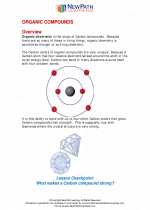Natural Gas
Natural gas is a flammable gas that is naturally occurring and is primarily composed of methane, along with small amounts of other hydrocarbons, such as ethane, propane, and butane. It is formed from the decomposition of organic matter buried deep beneath the earth's surface over millions of years. Natural gas is a valuable source of energy and is used for various purposes, including heating, cooking, and electricity generation.
Composition of Natural Gas
The composition of natural gas can vary depending on its source, but it typically consists of the following components:
- Methane (CH4) - 70-90%
- Ethane (C2H6) - 0-20%
- Propane (C3H8) - 0-20%
- Butane (C4H10) - 0-2%
- Carbon dioxide (CO2) - 0-8%
- Nitrogen (N2) - 0-5%
- Hydrogen sulfide (H2S) - 0-5%
Extraction and Processing
Natural gas is extracted from the ground through drilling wells into underground reservoirs. Once extracted, the gas is processed to remove impurities and separate the different hydrocarbons present. This processing involves techniques such as dehydration, sweetening, and fractionation to obtain the desired composition of natural gas for various uses.
Uses of Natural Gas
Natural gas has a wide range of applications, including:
- Heating homes and buildings
- Generating electricity
- Powering industrial processes
- Fueling vehicles
- As a feedstock for the production of chemicals and fertilizers
Environmental Impact
While natural gas is a relatively clean-burning fossil fuel compared to coal and oil, its extraction and use can still have environmental impacts, such as methane emissions during production and transportation, as well as potential groundwater contamination from drilling activities.
Study Guide
Here are some key points to remember about natural gas:
- What is the primary component of natural gas?
- How is natural gas extracted from the ground?
- List three common uses of natural gas.
- What are the environmental impacts associated with natural gas?
- Describe the composition of natural gas.
Understanding the composition, extraction, uses, and environmental impact of natural gas is essential for comprehending its role as a significant energy resource in today's world.
[Natural Gas] Related Worksheets and Study Guides:
.◂Science Worksheets and Study Guides Eighth Grade. Organic compounds

 Worksheet/Answer key
Worksheet/Answer key
 Worksheet/Answer key
Worksheet/Answer key
 Worksheet/Answer key
Worksheet/Answer key
 Vocabulary/Answer key
Vocabulary/Answer key
 Vocabulary/Answer key
Vocabulary/Answer key
